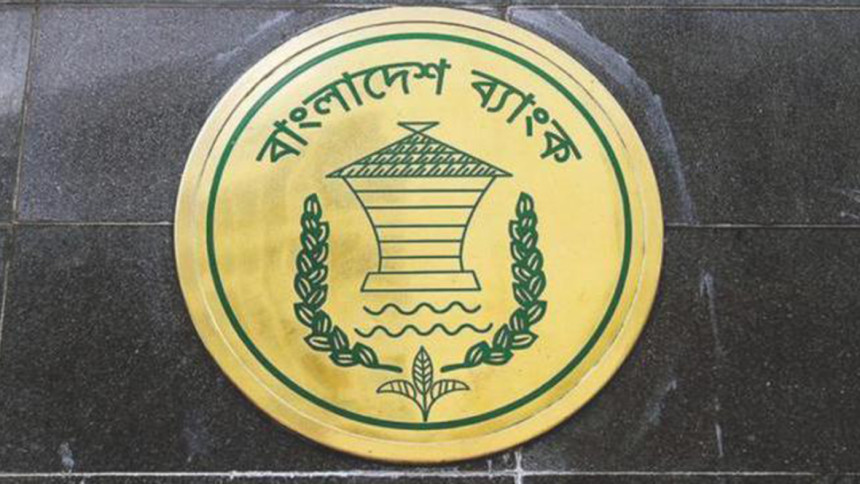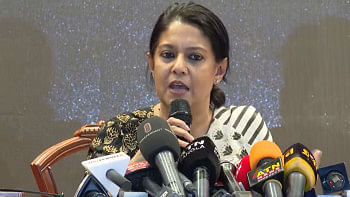BB to return to biannual monetary policy

The central bank is set to return to its semiannual monetary policy stance after three years as per a suggestion of the International Monetary Fund (IMF) but local economists say the move would not bring about any change amid the lending rate cap and multiple exchange rates.
In the fiscal year of 2019-2020, the central bank moved away from a twice-a-year policy statement to an annual statement that was practised for the previous two decades. Thus, it began coming up with the policy in July alone.
In November, a delegation from the IMF, during its talks with the government over the latter's $4.5 billion loan plan, called for unveiling the monetary policy on a quarterly basis since the economic situation is changing frequently, at home and abroad.
Accordingly, the Bangladesh Bank has begun its preparation and is holding discussions with stakeholders, including economic think tanks.
But economists say the return to the twice-a-year monetary policy would not yield any benefit amid the 9 per cent interest rate cap on loans and the multiple exchange rates.
Economists say the move would not bring about any change amid the lending rate cap and multiple exchange rates
The monetary policy statement would come at a time when foreign currency reserves are falling, inflation is running at a higher level, and the liquidity situation is tightening.
The inability of the government to arrest the deterioration of reserves, despite the taka depreciation and implementation of unorthodox policy measures, highlights the severity of the situation, according to Moody's Investors Service.
The widening current account deficit due to unfavourable terms of trade, as well as the BB's attempt to defend the taka, have eroded the reserves by around $8 billion since June.
Although it eased to some extent in November, inflation stood at 8.85 per cent last month amid higher prices of imported items and transport and energy costs.
Zahid Hussain, a former lead economist of the World Bank's Dhaka office, does not see the return to a sixth-month monetary policy statement as a significant development.
"The monetary policy is not working since its main instrument -- the lending rate -- is capped. If the arrangement remains the same but the monetary policy is unveiled twice a year or four times a year, what difference will it make?"
In July, he said, it was said that the central bank would move to a contractionary policy but such a policy stance is not being seen.
He pointed out both public and private credit growth.
Private credit growth stood at 13.91 per cent last month against the BB target of 14.1 per cent for the current fiscal year, which began in July.
The growth in government's net borrowing was 32.11 per cent in October.
"In the public sector, the central bank is providing 100 per cent finance. Where is the contraction then? There is no contraction anywhere. Rather, expansion has taken place," said Hussain.
"So, the monetary policy is not on track. The main challenge for the central bank is to bring the monetary policy on track."
According to Hussain, deficit financing of the budget is the main challenge for the government.
In order to meet the budget deficit, the government used to borrow from the banking system in the past. Now, 100 per cent of it is coming from the central bank. The monetisation of the deficit would not lessen the pressure on the reserves, he said.
Selim Raihan, executive director of the South Asian Network on Economic Modeling, however, welcomed the move to switch to the biannual monetary policy stance.
"Given the current volatility in the global and local economies, it is important to make a time-to-time adjustment of the monetary policy," he said.
He, however, said if the central bank keeps the interest rate on loans fixed, then it is left with no instrument.
"Allowing the central bank to apply its instruments properly is more important than announcing the monetary policy once or twice. It has to be given that independence."
Local economists and the IMF have called for lifting the cap on the lending rate to address the two challenges of runaway inflation and depletion of the forex reserves.
"I hope these would be addressed in the next monetary policy," said Raihan.
Ahsan H Mansur, executive director of the Policy Research Institute of Bangladesh, thinks stabilising the macro-situation is the main priority, by way of getting rid of the dollar shortage and mitigating the liquidity crunch in the banking system.
"The BB will have to make it clear the steps it has taken to eliminate scams at some banks."
He also questioned the logic of extending liquidity support to troubled Islamic banks.
"It has been done in a business-as-usual manner. It seems that nothing has happened. No steps have been taken against the board or management. Will there be no accountability?"
He alleged that the injection of the funds from the depositors would give embezzlers another chance to take money out of banks.
The former IMF economist said partial measures such as reining in imports have been taken.
"But we have not seen any serious effort in overcoming the challenges in the financial sector."
Prof Raihan said recently, many scams have surfaced in the banking sector and there are examples of influential business groups controlling banks and taking up a large volume of loans through irregularities.
"The January monetary policy statement should clearly state the issue of governance in the banking sector so that it sends signals about the good intention of the government and the central bank. Otherwise, it would be a bookish statement and it will not be useful."
Recently, BB Governor Abdur Rouf Talukder held meetings with noted economists and hinted that the concerns raised by the think tanks would be addressed within two to three months, said an official of the central bank.
The lending rate cap on consumer loans has been relaxed and it may fluctuate between 9 and 12 per cent.
The decision on withdrawing the ceiling on two other types of loans -- working capital and industrial loans – would be taken and the exchange rate would be made market-based when the time is right, the governor said at a conference in Dhaka on December 1.



 For all latest news, follow The Daily Star's Google News channel.
For all latest news, follow The Daily Star's Google News channel. 



Comments